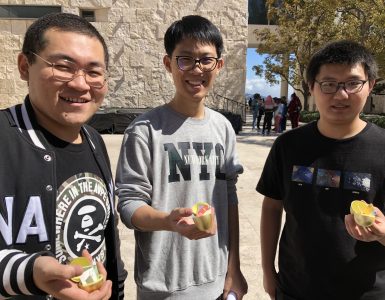English spelling can sometimes feel rather arbitrary, but rest assured there are rules to help you guide your pen or keyboard to the correct choice. We’ve compiled some of them to help get you started in recognizing patterns and taking note of exceptions.
I before E except after C

This rule is so useful and popular that it’s almost a jingle. It can help you spell words like conceive, believe, thief, grief, and debrief.
Exceptions include ancient, caffeine, foreign.
Also note that in words such as neighbor and weigh, the sound is that of A not E, which can help you remember the exception.
Doubling and the 1-1-1 rule

Some verbs, like stop, change to stopping, while others like start simply add -ing. The 1-1-1 rule can help you know what verbs double their final consonant. The rule states that if the verb has one syllable, one vowel in the middle, and one consonant at the end, then that consonant doubles when you add such suffixes as -ing, -ed, -er, -est.
Splat + er = splatter
Fat + est = fattest
Plop + ed = plopped
Jar + ing = jarring.
Some consonants do not generally double. These include K, J, V, W and X.
But you say, what about the word divvy? This means to divide something amongst people, as in, “The thieves divvied the loot.” But the word is considered slang in most dictionaries.
Keep the E or drop the E?

In English, suffixes (-ful, -ness, -ly, -ing, -ance) can be very helpful for transforming words from one part of speech to another, for example from a verb to a noun or adjective. But knowing how to do this can be tricky. With words that end in E, you must drop the E when adding a suffix that begins with a vowel, but not when it begins with a consonant:
Hope + ing = hoping
Hope + ful = hopeful
Love + able = lovable
Love + ly = lovely.
Final Y changes to I, unless the suffix begins with I

Similar to the above, a relatively stable rule exists for adding suffixes to words ending in Y. The Y changes to I, unless the suffix begins with an I, for instance -ing, as in flying.
Fancy + ful = fanciful
Pretty + ness = prettiness
Defy + ance = defiance.
How do I make this noun plural?

You usually add S to make a noun plural, for instance insect > insects. But when the word ends in Y, you may have noticed that sometimes it changes to -ies, and sometimes not. In order to figure out what to do, look at the letter before the Y; if it is a vowel then you simply add an S, but if it’s a consonant, then you must change the Y to I and add -es.
Essay > essays
Butterfly > butterflies.
What spelling rules have you found helpful in your journey to fluency? Let us know in the comments.



